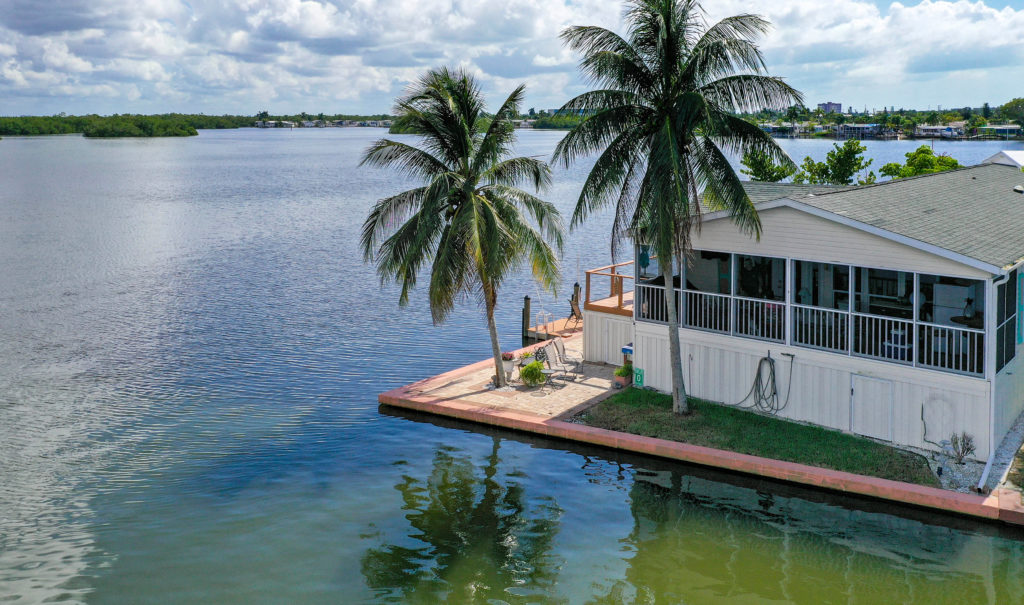Coconut Palm Trees (Cocos nucifera)
Few sights evoke the essence of “tropical paradise” quite like the graceful silhouette of a coconut palm tree. With their slender trunks and swaying palm fronds, these iconic trees are easily identified and often sought-after. But here’s a fun fact, despite their ubiquitous presence in Florida, coconut palm trees are not native to the Sunshine State.

Coconut Palms Are Not Native To Florida
Yes, you read that right. Despite their popularity and charm, coconut palm trees are not a Florida native plant species. In fact, the University of Florida’s Assessment of Non-Native Plants has determined that the coconut palm is predicted to be invasive in South Florida, although it is not officially on the invasive species list that we know of.
So, can you plant coconut palms in Florida? Yes. In northern Florida, there are no restrictions as the palm is deemed “not a problem species.” Central Florida has a “plant with caution” status. In South Florida, the following conditions must be met (according to UF IFAS Gardening Solutions):
- Coconut palms must not be planted near canals (and other flowing waterways) or adjacent to natural areas.
- Fallen fruit must be prevented from entering canals and other flowing waterways connected to open waters (including coastal).
- Unwanted fruit must be placed in yard waste.
We Suggest Planting Native
Of course, we always suggest keeping to native plant options, especially on Sanibel Island. Check out our blog How To Go Native On Sanibel, or visit the SSCF Native Landscapes website for more information on the importance of planting native on island. SCCF even provides an online native plant database linked here.
The Good with the Bad
Although they’re not native, we’re not here to bash coconut palms! In fact, these trees are valuable horticulture commodities and have a global economic impact. As you know, the coconut meat can be consumed fresh or even dried. Coconut water and coconut milk are other tasty benefits of this tropical fruit-bearing tree.
Extracted coconut oil serves many purposes in cooking and cosmetics, and even the coconut coir husk fibers can be used in various applications. Just about every part of the coconut can be used in some form or fashion, which is fascinating!
We encourage you to continue reading about coconut palms and native plants via the links below, and to also tap into the numerous landscaping and environmental resources we have here on Sanibel Island.
Coconut Palm Resources:
IFAS – Gardening Solutions
IFAS – The Coconut Plam in Florida
Native Plant Resources:
How To Identify Native Plants on Sanibel
How To Go Native On Sanibel
